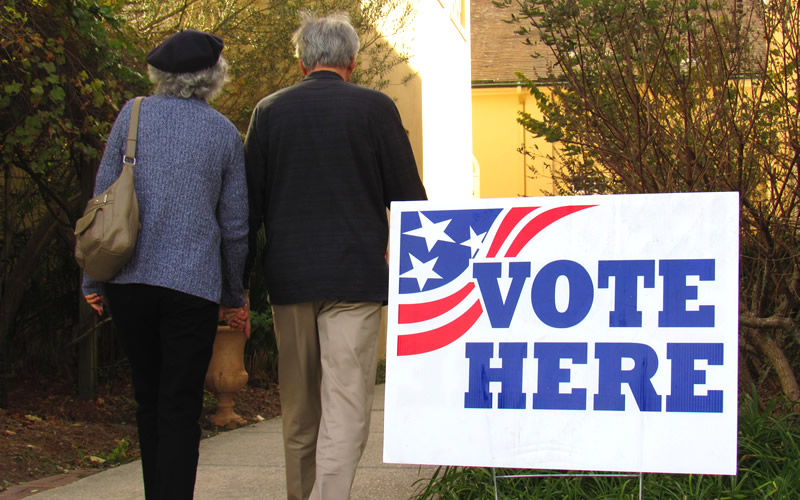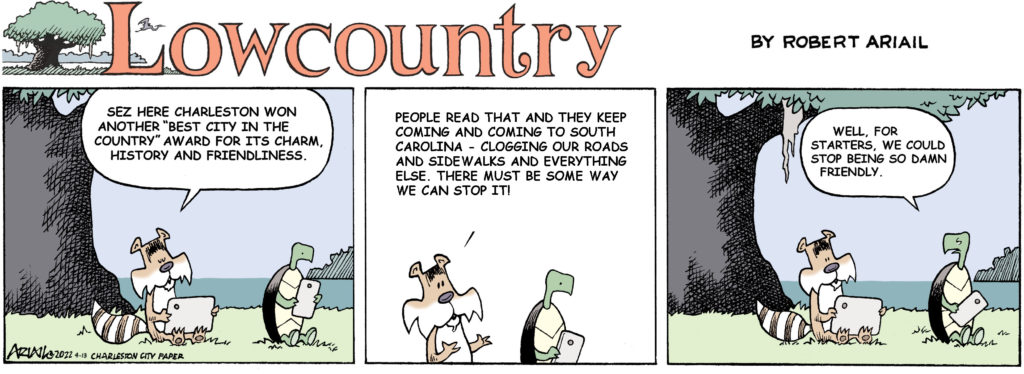BIG STORY: Senate to consider election reforms next week
NEWS BRIEFS: Former governor says Mariupol is starving
LOWCOUNTRY, Ariail: Consequences of friendliness
COMMENTARY, Brack: Make investments to cure the tragedy of Alzheimer’s
SPOTLIGHT: The Felkel Group
FEEDBACK: On the blind leading the blind
MYSTERY PHOTO: Blue lights
BIG STORYSenate to consider election reforms next week

By Andy Brack | After a weekend nudge from GOP Gov. Henry McMaster, state senators next week are expected to take up broad election reforms spurred in part by the 2020 election results.
On Sunday, McMaster offered a newspaper commentary that strongly encouraged lawmakers in the Republican-led Senate to debate election reforms passed earlier by the House. On Tuesday, senators voted to put the bill on special order to be taken up on the floor no earlier than Wednesday.
The bill, H. 4919, calls for changes that may expand voting, such as a two-week period of early voting. But the bill would also limit excuses for mail-in voting and require more identification and information for absentee ballots. It also calls for a stop to “ballot harvesting,” which many majority parties worry about because the practice allows people, such as political organizers, to witness lots of absentee ballot applications.
But the election proposal also calls for regular and routine audits of ballots to “confirm the integrity of elections conducted on the state and local level,” as the governor explained. This call for audits is a common Republican response across the country following wails that the 2020 presidential election was “stolen” from former President Donald Trump, despite reams of evidence to the contrary.
Election analysts routinely say there’s no proof that fraudulent elections happen in South Carolina. But the call for audits, despite being rooted as a way to address the political fear of unexpected results, isn’t necessarily a bad thing. It is, rather, something perhaps suggested for the wrong reason, said the League of Women Voters of South Carolina’s Lynn Teague.
“South Carolina’s elections are generally well-managed and fair,” she said. “They are not in need of massive reform. The League supports audits, has always supported audits, to identify technical issues and to reassure the public, all of the public.”
She said the League has never found evidence of fraud in elections it has audited, but it has found “user error” among the election day staffers who use machines and their software.
“Audits don’t just expose outright fraud,” Teague said. “They expose the much more common issues around election processes and equipment.”
- Have a comment? Send to: feedback@statehousereport.com.
Former governor says Mariupol is starving

Staff reports | Former S.C. Gov. David Beasley, who is head of the U.N. World Food Program, said people are being “starved to death” in the besieged Ukrainian city of Mariupol. He predicted the country’s humanitarian crisis is likely to worsen as Russia intensifies its assault on the strategic port city in the coming weeks.
“Beasley also warned in an interview Thursday with The Associated Press in Kyiv that Russia’s invasion of grain-exporting Ukraine risks destabilizing nations far from its shores and could trigger waves of migrants seeking better lives elsewhere.”
Meanwhile, several S.C. members of Congress say they’re proud to be on a list of people who Russian leader Vladimir Putin says can’t visit Russia.
In other recent news:
S.C. Senate’s $12.6B budget gives workers raises, no bonuses. South Carolina’s budget will likely face intense negotiations after Senate budget writers advanced a $12.6 billion plan based on $2 billion in income tax cuts and rebates. Education advocates say they’re disappointed with the Senate’s plan. Bonuses also are in question, The State reports.
Lawsuit over S.C. execution methods can move forward, judge rules. A lawsuit brought by four death row inmates challenging South Carolina’s execution methods can move forward, a judge ruled Thursday.
![]() S.C. juvenile justice agency agrees to reform main prison. The South Carolina Department of Juvenile Justice announced Thursday that it will reform its beleaguered central prison for youths under a settlement agreement with the federal government.
S.C. juvenile justice agency agrees to reform main prison. The South Carolina Department of Juvenile Justice announced Thursday that it will reform its beleaguered central prison for youths under a settlement agreement with the federal government.
McMaster signs bill on convention of states. S.C. Gov. Henry McMaster has signed a bill into law to make changes to the Constitution by putting spending checks on the federal government, curbing the federal government’s jurisdiction and power, and setting term limits for Congress. South Carolina joins 18 other states that have passed similar laws.
McMaster amasses $5M for 2022 reelection. McMaster has raised more than $5 million ahead of midterm elections. Neither of his opponents in the upcoming June primary have undertaken significant fundraising. Former U.S. Rep. Joe Cunningham is leading the Democratic fundraising field with $1.7 million raised so far.
Farmer to retire after nearly a decade as S.C. insurance chief. Ray Farmer will retire this week as chief of South Carolina’s Department of Insurance after nearly a decade on the job, the governor’s office announced Tuesday.
Billions at stake as Lancaster County gold mine expands. A mining company that has been digging in Lancaster County struck a deal with environmentalists that could expand the project from 4,500 acres to nearly 5,400.
- Want more headlines every business day that are like this? Visit our friends at SC Clips.
Consequences of friendliness

Cartoonist Robert Ariail often interprets things a little differently, but always has an interesting take on what’s going on in South Carolina. Love the cartoon? Hate it? What do you think: feedback@statehousereport.com.
Make investments to cure Alzheimer’s tragedy

By Andy Brack | A scary scenario for anyone who earns a livelihood through the power of their brain is the possibility for the brain to start to fade before the body is ready.
 That’s what happens with dementia, whether brought on by degenerative Alzheimer’s disease or a host of conditions from brain injury and other maladies.
That’s what happens with dementia, whether brought on by degenerative Alzheimer’s disease or a host of conditions from brain injury and other maladies.
The tragedy of Alzheimer’s hit home twice in recent days. A visit by an out-of-state family suggested the beginnings of dementia in a longtime friend who recently retired. The once gregarious friend functions but is timid like never before. He’s often unsure of what to order on a menu or how to react to new information. He’s lucky to have a partner who is fully engaged in keeping him engaged and part of the present.
The same goes for a Georgia couple who we read about in a sad but soothing essay. The husband provides physical caregiving and emotional support to his wife, first diagnosed with Alzheimer’s in 2016.
“We have shared the journey of life, but each doing their part on a 50-50 basis,” he wrote of their 50+ years of marriage. “Our journey is now changing and the shared components are probably about 80-20 today, but that varies from day to day. To clarify, my ‘caregiving’ is actually ‘care partnering,’ as [my wife] still cares for some activities for me or both of us.”
His help includes lots of normal household chores, but he also reads to his wife and engages her with videos, webinars and music. They visit parks, hike, work in the yard and more.
“When we are together, I try to be ‘where she is,’” he wrote recently. “Doing so increases her comfort and reduces confusion. I try to have empathy, compassion, acceptance, and patience and tolerance.”
Unfortunately, Alzheimer’s disease is getting more pervasive as the American population ages. According to the Alzheimer’s Association, 125,000 people in South Carolina are likely to have the disease by 2025, a 26 percent increase since 2020. The state has almost 200,000 people – 4 percent of the population – who are engaged in caregiving for the disease annually. Data show they provide 296 million hours a year of unpaid care with a value of $4.3 billion.

“South Carolina has some of the highest incidence and prevalence rates of the disease in the country, with minority populations in the state having double the risk of Alzheimer’s disease than those of European descent,” said Charleston Dr. Jacobo Mintzer, one of the nation’s leading Alzheimer’s researchers. “We openly welcome retirees to our state, but they will need more resources than manicured golf courses.”
But there’s hope, Mintzer said.
“Alzheimer’s disease can and will be cured if we all put forth the effort and the resources that it requires.”
Mintzer said Alzheimer’s patients in South Carolina are able to take part in promising new therapeutics for the disease.
“Currently, persons suffering from Alzheimer’s disease have access to two types of FDA-approved treatments and to a variety of clinical trials that offer them the opportunity to receive promising, new treatments in the context of a research project,” he said. “Also, and equally important, physicians can offer treatments to ameliorate symptoms such as agitation, aggression, depression, apathy and psychosis. These symptoms usually result in caregiver burden and the need for institutional placement.
“In the coming years, we can expect a number of treatments to be approved that will slow the progression of the disease and make Alzheimer’s disease a chronic rather than fatal disorder.”
Alzheimer’s disease robs older South Carolinians of their souls. Let’s make sure leaders across the state, including state lawmakers who control the surpluses to the state budget, make appropriate investments to provide access to the kinds of specialized medical tools and care needed by more than 100,000 people across the Palmetto State. These investments will pay off in many more ways than just offering peace of mind.
Andy Brack is publisher of the Charleston City Paper and editor and publisher of Statehouse Report. Have a comment? Send to: feedback@statehousereport.com.
The Felkel Group
 The public spiritedness of our underwriters allows us to bring Statehouse Report to you at no cost. This week in the underwriter spotlight is The Felkel Group, a battle-tested public affairs and business development firm that assists corporations, associations and not-for-profits that are serious about their long-term success. The Felkel Group solves problems, crafts and delivers messages, helps organizations to manage crisis, and uses a wealth and breadth of valuable relationships to help to seal deals.
The public spiritedness of our underwriters allows us to bring Statehouse Report to you at no cost. This week in the underwriter spotlight is The Felkel Group, a battle-tested public affairs and business development firm that assists corporations, associations and not-for-profits that are serious about their long-term success. The Felkel Group solves problems, crafts and delivers messages, helps organizations to manage crisis, and uses a wealth and breadth of valuable relationships to help to seal deals.
The Felkel Group is also home to an outstanding advocacy tool called The Rap Index, a powerful intelligence tool that employs sophisticated computer modeling and profiling techniques to help organizations find their most effective advocates. To learn more about The Felkel Group and its Rap Index, go to: http://www.felkelgroup.com.
On the blind leading the blind
To the editor:
![]() et’s try specifying the diversity and competence characteristics sought for University of South Carolina trustees (And all the other major trust roles in our state institutions). [Brack, 4/8: Hoping the blind can stop leading the blind].
et’s try specifying the diversity and competence characteristics sought for University of South Carolina trustees (And all the other major trust roles in our state institutions). [Brack, 4/8: Hoping the blind can stop leading the blind].
Geographic diversity is already guaranteed by the political election process. That is enough. Trustee selection independent of the geographic allocation of the chairs to be filled opens the needed door. Our state legislators are smart enough to specify the needed characteristics, without their lights being lit up using the “know it when you see it” standard of applicant selection.
Diversity is achieved best by selection for the specific contributions and viewpoints needed. Where the person resides in truth or in a deception is redundant. That model guarantees the mediocrity we often observe. It leads to keeping South Carolina at the near bottom of too many lists. We need more than geographic legislators with hands on the dials to achieve higher.
Ten years is enough for an instance of public service contribution. Retiring incumbents can enrich the trustee screening panel. They can find the best three candidates to recommend to our legislators and then move on to other contribution roles.
– Fred Palm, Edisto Island, S.C.
- Have any other comment? Send your letters or comments to: feedback@statehousereport.com. Make sure to provide your contact details (name, hometown and phone number for verification. Letters are limited to 150 words.
Blue lights

This place looks like it could be fun, but where and what is it? Send your guess to feedback@statehousereport.com — and remember to include your name, home city and contact information.
 Last week’s mystery, “Three flags,” showed the South Carolina, Irish and American flags at Charlotte Street Park in Charleston. Congratulations to these sleuths who identified it: Allan Peel of San Antonio, Texas; George Graf of Palmyra, Va.; Elizabeth Jones and Jay Altman, both of Columbia; and Pat Keadle of Wagener.
Last week’s mystery, “Three flags,” showed the South Carolina, Irish and American flags at Charlotte Street Park in Charleston. Congratulations to these sleuths who identified it: Allan Peel of San Antonio, Texas; George Graf of Palmyra, Va.; Elizabeth Jones and Jay Altman, both of Columbia; and Pat Keadle of Wagener.
Peel shared, “The park was designed by Sheila Wertimer, a proficient landscape architect who operates in the Charleston area and who has, during the past two decades, designed hundreds of gardens, city parks, rural landscapes and rooftop gardens. The Irish Memorial was completed in January 2013 and dedicated in June 2013 to honor all the past immigrants who had come to South Carolina and influenced its long history, ranging from those who fought in the Civil War, signed the Declaration of Independence, and even some who were mayors of the “Holy City”. Not visible in the mystery photo is the main feature of the Memorial itself, a large granite map of Ireland and its counties which extends over the waters of the Cooper River.
- Send us a mystery. If you have a photo that you believe will stump readers, send it along (but make sure to tell us what it is because it may stump us too!) Send to: feedback@statehousereport.com and mark it as a photo submission. Thanks.
- ORDER NOW: Copies are in Lowcountry-area bookstores now, but if you can’t swing by, you can order a copy online today.
- Now available as an e-book!
ABOUT STATEHOUSE REPORT
Statehouse Report, founded in 2001 as a weekly legislative forecast that informs readers about what is going to happen in South Carolina politics and policy, is provided to you at no charge every Friday.
- Editor and publisher: Andy Brack, 843.670.3996
Donate today
We’re proud to offer Statehouse Report for free. For more than a dozen years, we’ve been the go-to place for insightful independent policy and political news and views in the Palmetto State. And we love it as much as you do.
But now, we can use your help. If you’ve been thinking of contributing to Statehouse Report over the years, now would be a great time to contribute as we deal with the crisis. In advance, thank you.
Buy the book
Now you can get a copy of editor and publisher Andy Brack’s We Can Do Better, South Carolina! ($14.99) as a paperback or as a Kindle book ($7.99). . The book of essays offers incisive commentaries by editor and publisher Andy Brack on the American South, the common good, vexing problems for the Palmetto State and interesting South Carolina leaders.
More
- Mailing address: Send inquiries by mail to: P.O. Box 21942, Charleston, SC 29413
- Subscriptions are free: Click to subscribe.
- We hope you’ll keep receiving the great news and information from Statehouse Report, but if you need to unsubscribe, go to the bottom of the weekly email issue and follow the instructions.
- Read our sister publication: Charleston City Paper (every Wednesday in print; Every day online)
- © 2022, Statehouse Report, a publication of City Paper Publishing, LLC. All rights reserved.















 We Can Do Better, South Carolina!
We Can Do Better, South Carolina!